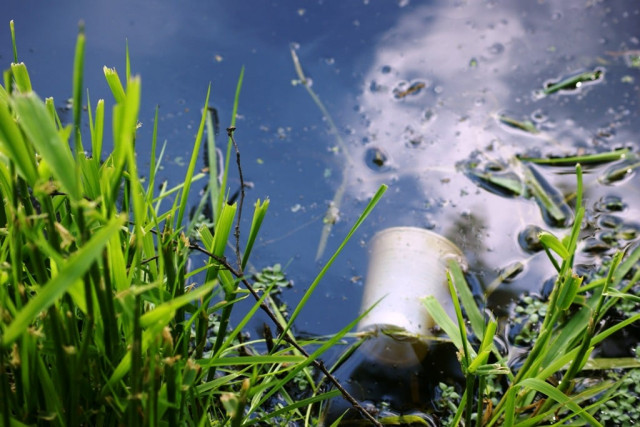Senate rejects international report on water contamination in Pakistan as 'wildly exaggerated'
Arsenic poisoning can cause major health complications like cancer, liver disease, coma and death if not treated

The World Health Organisation specifies that only 10 parts per billion (ppb) of arsenic should be present in a river, but nearly 200 ppb of the harmful chemical was present in some bodies of water in Sindh. PHOTO: FILE
Arsenic poisoning can cause major health complications like cancer, liver disease, coma and death if it is not treated, so precautions exist to protect those who are at risk.
Arsenic in water needs to be removed on war footing
“The journal ‘Advance Sciences’ data are wildly exaggerated,” insisted officials of Pakistan Council of Research in Water Resources (PCRWR) during a meeting of the Senate Standing Committee on Science and Technology presided over by its chairman Senator Osman Saifullah Khan.
Khan had raised the issue of presence of arsenic in groundwater of Pakistan during the meeting.
Briefing the chairman and members of the standing committee, officials of PCRWR, which functions under the Ministry of Science and Technology, said that in the report the researchers had given a wrong impression that arsenic was present in the groundwater of the entire country.
Arsenic in Pakistan groundwater 'alarmingly high': study
“On the basis of samples taken from only 1,200 wells in the country, they cannot claim that the entire groundwater of Pakistan is contaminated with high levels of arsenic,” said an official of PCRWR, adding that arsenic was only present in areas which received floodwater.
“Arsenic is not present in Balochistan, Islamabad or Khyber-Pakhtunkhwa, but along with Dera Ismail Khan and Ziarat, it is only present in a few parts of Sindh and Punjab,” said the official.
Declaring groundwater of Ziarat as unsafe for drinking, the PCRWR officials revealed that water samples collected from the area indicated high levels of arsenic contamination.
Karachi’s water unfit for human consumption
The officials admitted that unfortunately Pakistan, apart from other South Asian countries, lacked resources to control the threat.
The officials also informed the committee members that Pakistan followed its own standard of measuring arsenic in water.
They also informed the committee members that the concerned authorities had closed 200 points that were manufacturing bottled water which was highly contaminated and posed serious health risks.




1724319076-0/Untitled-design-(5)1724319076-0-208x130.webp)














COMMENTS
Comments are moderated and generally will be posted if they are on-topic and not abusive.
For more information, please see our Comments FAQ